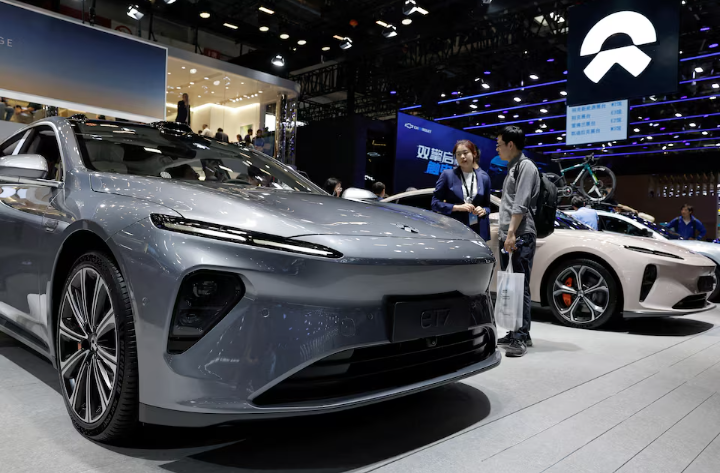The automotive world’s eyes are on Shanghai this week as more than 70 car brands—both Chinese and international—unveil over 100 new or refreshed electric and hybrid models at the 2024 Beijing International Auto Show. With the spotlight on China’s booming EV market, local giants like BYD and Geely are gearing up to dominate, while global players like Volkswagen, Toyota, and GM’s Cadillac are also vying for attention.
But this year’s showcase comes with an unexpected twist: a government crackdown on how carmakers advertise their autonomous driving features. This follows a tragic crash involving Xiaomi’s electric sedan, the SU7, which resulted in three deaths. The vehicle, which had sold over 215,000 units since its launch, was operating under an assisted-driving system at the time of the incident. Regulators now prohibit marketing terms like “autonomous” or “smart driving” without official approval, reshaping how brands present their tech innovations.
As a result, automakers like BYD and Zeekr have had to revise their presentations, shifting from bold autonomy claims to cautious messaging around safety and driver responsibility. Huawei, which partners with several carmakers, also launched a campaign to promote safe driving practices, reminding users that technology is an aid—not a replacement—for human awareness.
Despite the regulatory headwinds, the competition is heating up. BYD has made waves with its “God’s Eye” driver-assistance system, now standard across many of its models—even those priced as low as $10,000. This aggressive move echoes its past strategy of slashing EV prices to outpace rivals, creating discomfort among competitors.
The Chinese government is also tightening rules on over-the-air updates for driving software and improving EV battery safety standards, responding to fire and explosion risks. Tesla, impacted by these rules, has paused its free trial of the Full Self Driving (FSD) feature in China and even renamed it to “intelligent assisted driving.”

Meanwhile, the core battle rages on: Tesla’s Model Y is facing a flood of Chinese challengers. New electric crossovers like Xpeng’s G6 and Zeekr’s E6 are not only cheaper but come loaded with advanced features such as faster charging, smarter driving systems, and immersive in-car entertainment. Xiaomi’s hotly anticipated YU7 crossover—considered a major threat to the Model Y—won’t debut yet, but the SU7 and SU7 Ultra will still be on display.
Tesla, which hasn’t participated in Chinese auto shows since 2021, is feeling the squeeze. Its market share in China has dropped from 15% in 2020 to just 9% this year. Globally, Tesla saw declining sales in early 2025, partly due to growing criticism of CEO Elon Musk’s political affiliations.
As the EV tide rises in China—with electric and hybrid vehicles now accounting for over half of all new car sales—Tesla’s dominance is being seriously challenged. Industry experts predict that it won’t be a single model that dethrones the Model Y, but a wave of competitive offerings from China’s fast-evolving automakers.



